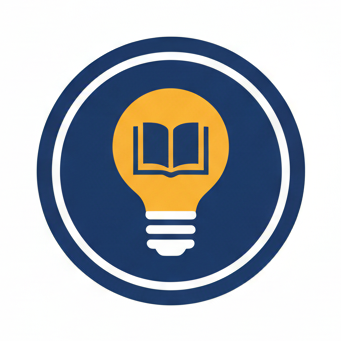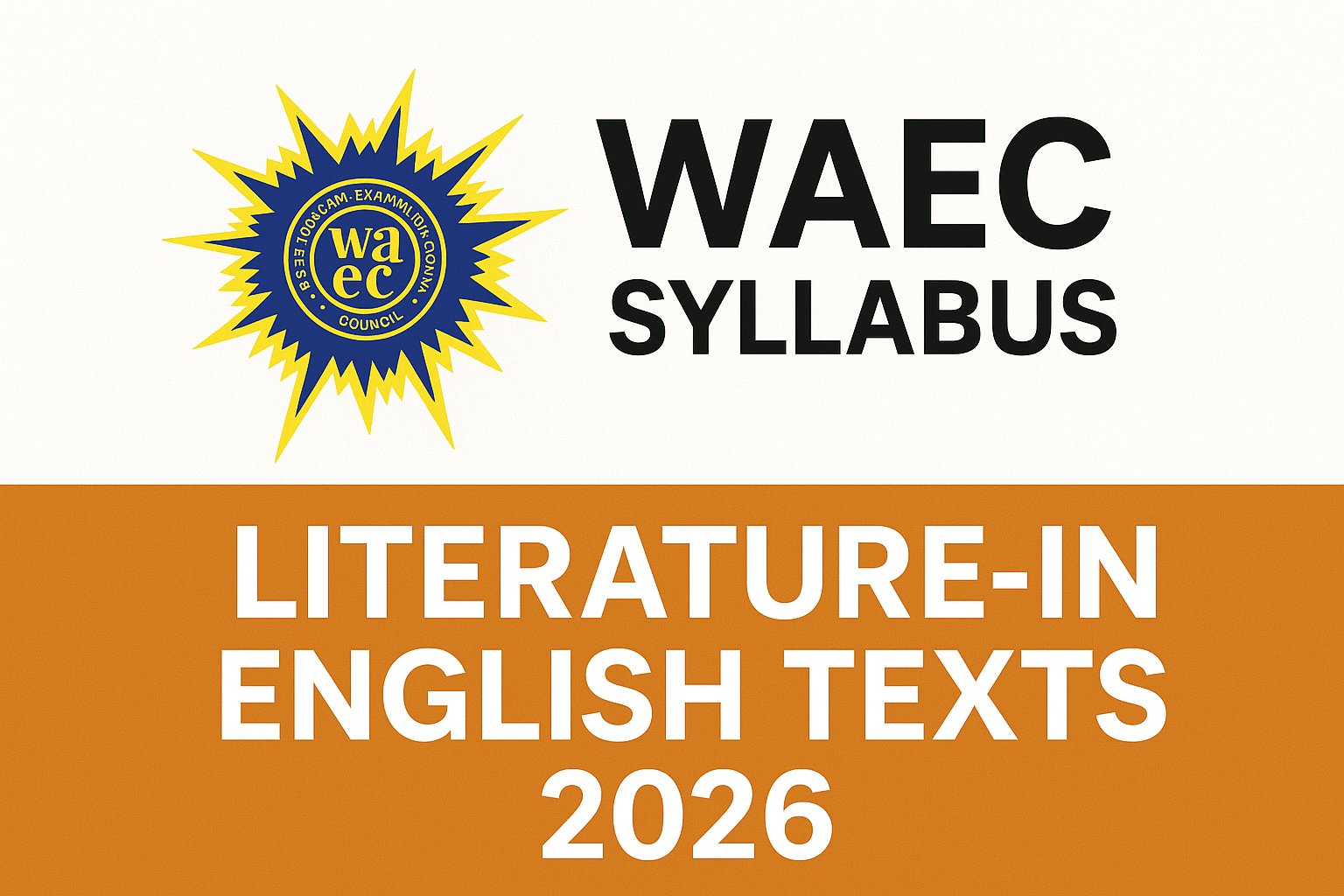Every few years, the West African Examinations Council (WAEC) updates the list of literature texts that will be used for the WASSCE Literature-in-English exam. For the 2026–2030 cycle, WAEC has released a fresh, harmonized list, and this is the list that will guide what students read, what teachers teach, and what schools prepare for.
This harmonized list matters because it ensures that students from all WAEC countries study the same texts and are examined fairly. Whether you are in Nigeria, Ghana, Sierra Leone, Liberia, or The Gambia, this is the official reading texts for Literature-in-English.
What’s Inside the New Literature-in-English Text List?
WAEC has selected a mix of prose, drama, and poetry, including works from African and non-African writers. There’s also a Shakespearean play, which remains a core part of the Literature curriculum.
1. Shakespearean Text
- Antony and Cleopatra – William Shakespeare
A powerful story about politics, loyalty, and love. Students will explore the clash between duty and desire through Shakespeare’s rich language.
2. African Prose
- So the Path Does Not Die – Pede Hollist
- Redemption Road – Elma Shaw
These novels highlight African experiences, exploring themes of identity, conflict, culture, and personal growth.
3. Non-African Prose
- To Kill a Mockingbird – Harper Lee
- Path of Lucas: The Journey He Endured – Susanne Bellefeuille
This section brings global perspectives on justice, racism, family, and resilience. The stories are emotional, relatable, and full of life lessons.
4. African Drama
- Once Upon an Elephant – Bosede Ademilua-Afolayan
- The Marriage of Anansewa – Efua Sutherland
These plays blend humour, African storytelling traditions, and thought-provoking themes, making them enjoyable to study both in class and in performance.
5. Non-African Drama
- An Inspector Calls – J. B. Priestley
- A Man for All Seasons – Robert Bolt
From moral dilemmas to suspenseful mysteries, these plays challenge students to think deeply about society, choices, and consequences.
6. African Poetry
A rich collection of poems from renowned African voices, including:
- Gabriel Okara — “Once Upon a Time”
- Elizabeth L. A. Kamara — “New Tongue”
- Wole Soyinka — “Night”
- Niyi Osundare — “Not My Business”
- S. O. H. Afriyie-Vidza — “Hearty Garlands”
- Syl Cheney-Coker — “The Breast of the Sea”
Students will explore themes such as memory, change, injustice, culture, and human experience through African imagery and rhythms.
7. Non-African Poetry
A diverse selection of global poetic voices, including:
- Lord Byron — “She Walks in Beauty”
- Geoffrey Chaucer — “The Nun’s Priest’s Tale” (excerpt)
- Seamus Heaney — “Digging”
- Maya Angelou — “Still I Rise”
- Fleur Adcock — “The Telephone Call”
- Wilfred Wilson Gibson — “The Stone”
These poems provide a blend of classic and modern styles, offering plenty for students to analyse and enjoy.
Why This Harmonized List Matters
1. Fairness Across West Africa
All students use the same texts, which makes marking and grading more uniform.
2. Better Curriculum Planning
Teachers can structure lessons more confidently, knowing the list is stable for five full years.
3. Focused Exam Preparation
Students know exactly what to read and what topics WAEC will likely test.
4. Easier Access to Study Materials
Schools, bookshops, and libraries can stock the correct books without confusion.
5. Balanced Literary Exposure
The list introduces students to a wide range of cultures, eras, and writing styles, building their critical thinking and creativity.
What Students Should Do Now
- Start reading early. Don’t wait until exam year.
- Discuss the texts. Join study groups or class discussions.
- Practise writing. Essays, character analysis, and theme breakdowns strengthen understanding.
- Use multiple resources. Guides, teacher notes, and practice questions make learning easier.
- Engage with the stories. Watch performances, read aloud, and explore characters deeply.
The WAEC Literature-in-English Texts for 2026 offer both challenge and excitement. They blend global classics with powerful African writing, giving students a rich literary journey over their senior secondary years.
Whether you’re a student preparing for exams, a teacher planning lessons, or a school updating its library, this list is your roadmap. Approached with the right mindset, these texts won’t just help you pass WASSCE, they’ll help you grow as a reader and thinker.
Download a Copy Below:


Leave a Reply